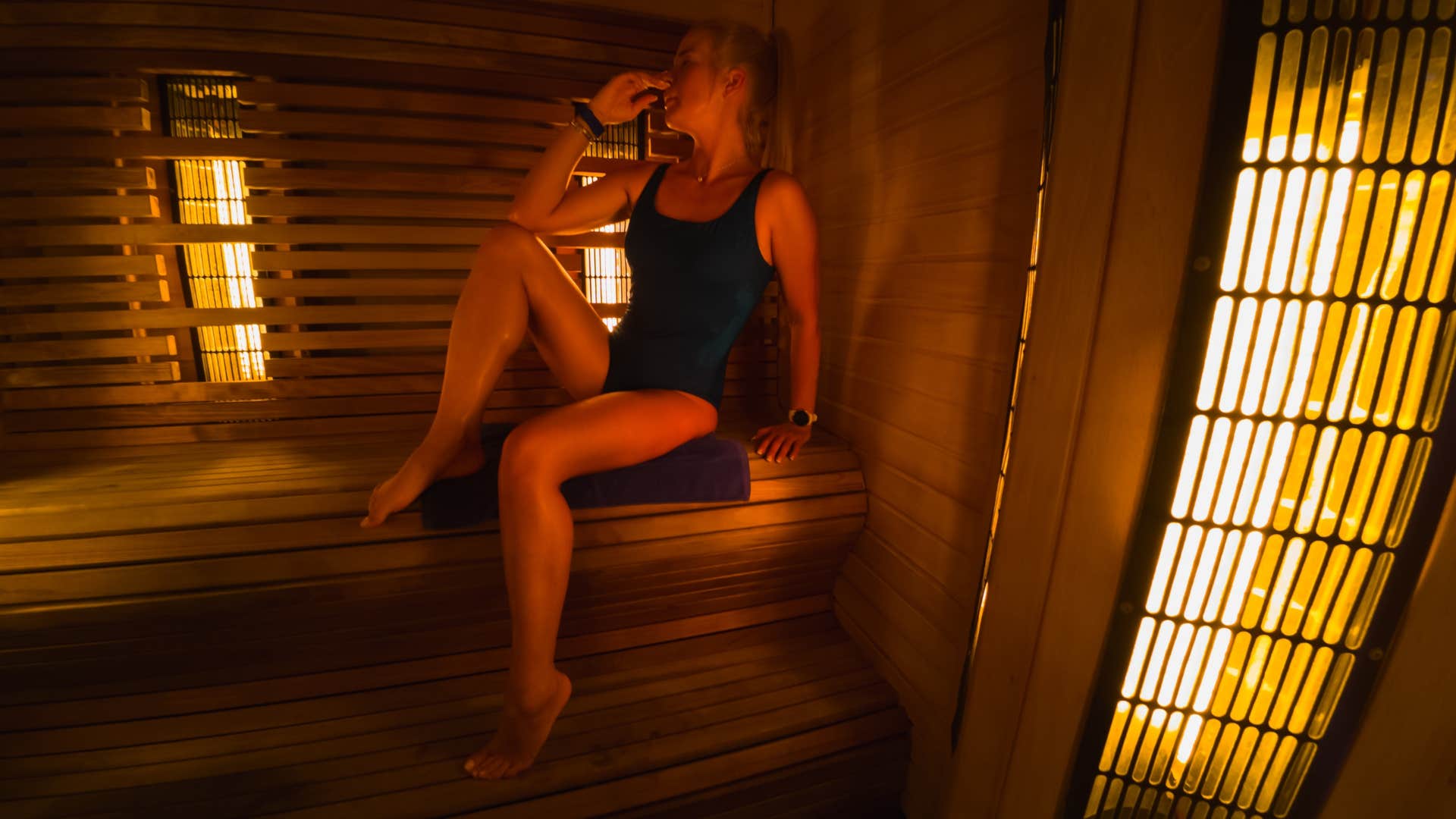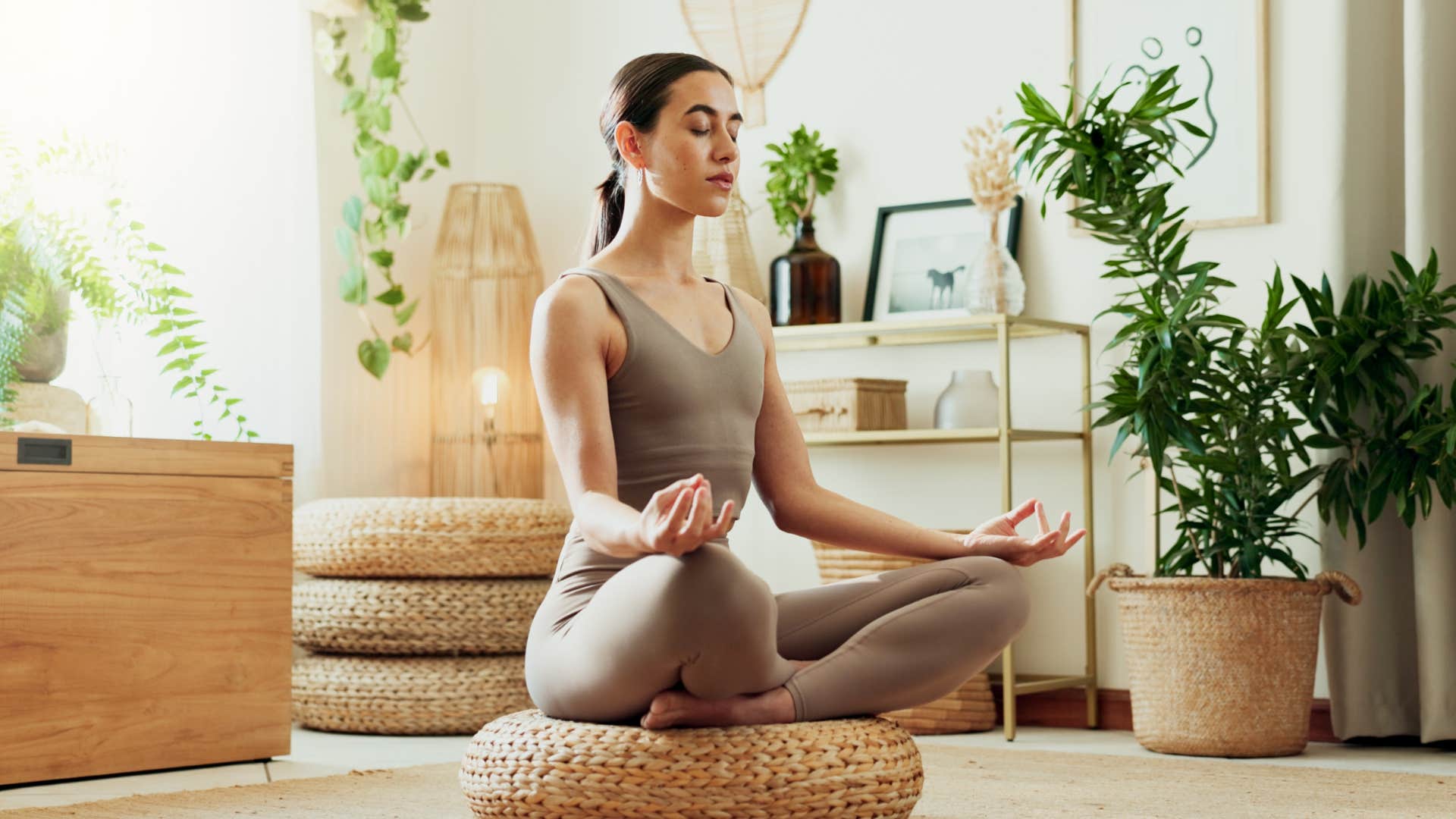11 Cozy Habits That Keep Your Spirit Warm When The Weather Gets Cold
When the days turn chilly, these comforting habits can help you keep warm from the inside out.
 Martin Reisch | Unsplash
Martin Reisch | Unsplash The cold-weather months can be a complicated time when it comes to your physical and mental health. While some people love the change in seasons coupled with the holidays, the colder months can be challenging for a lot of people.
Effective self-care strategies to get you through the colder months can make all the difference in how well you feel as the winter months wear on. Whether you manage seasonal depression, holiday-related stress and anxiety, or just get weary of the icy snow and slush, self-care is key to any effective strategy for making the most of the cold-weather months, which can present you with a unique set of stressors.
“Our bodies respond to cold weather by tensing up,” clinical psychologist Dr. Deborah Offner says. “It’s harder to relax when you are holding your body tightly, bracing against the wind, and running from place to place trying to seek shelter. So it’s important to be extra good to yourself and to create more opportunities to relax your body and mind.”
While self-care can seem like a luxury amid the hustle and demands of daily life, a 2006 study shows it’s actually pretty nonnegotiable when it comes to upping your stress resilience, regulating your moods, and taking care of your mental health. So choose a few new self-care strategies to try, get cozy, and enjoy the unique beauty that only the winter months can bring.
Here are 11 cozy habits that keep your spirit warm when the weather gets cold:
1. Get some sun in every day
 Maria Markevich / Shutterstock
Maria Markevich / Shutterstock
“Lack of sunlight — secondary to staying inside — can negatively affect mood, even for those without any diagnosable condition like seasonal affective disorder,” says Offner.
“Pushing yourself to layer up and run outside or even buying special lights for your apartment can help.” Lightboxes, early morning walks, and making sure to get outside each day during daylight hours can help boost your mood during the shorter, darker days of winter.
2. Enjoy hot baths
 Prostock-studio / Shutterstock
Prostock-studio / Shutterstock
A luxurious soak with your favorite bath salts or bubble bath is a simple way to warm up and pamper yourself during the cold-weather months, Offner says. Warm baths can help relax tense muscles and are an easy, accessible way to get some wintertime self-care in.
Beyond the physical warmth, there's something psychological about the ritual. It's permission to pause, to let your mind wander, to exist without an agenda for twenty or thirty precious minutes. An article by UC San Diego explained that in our productivity-obsessed culture, a bath is one of the few activities that serves no purpose other than making you feel better.
3. Find an infrared sauna
 Dmitri T / Shutterstock
Dmitri T / Shutterstock
Few things combine warmth and relaxation as effectively as infrared sauna sessions. Infrared saunas help relax sore, tired muscles and can warm you up like nothing else. They may also help relieve arthritis pain, promote better sleep, and improve circulation.
Hours after your session, you'll still feel that deep, satisfying heat in your muscles and a sense of relaxation that makes even the coldest winter evening feel more manageable. It's like carrying a piece of summer with you, tucked away inside where the weather can't touch it.
4. Try floatation therapy
 Mila Supinskaya Glashchenko / Shutterstock
Mila Supinskaya Glashchenko / Shutterstock
Floatation therapy can be a powerful winter self-care strategy, suggests Offner. While floating in a darkened tank of saltwater might not be for everybody, proponents like Offner say it can promote relaxation, pain relief, better sleep, deeper meditations, and overall wellness.
The experience itself is designed to shut out the external world entirely. A 2024 study suggested that in the darkness and silence of the tank, away from the constant stimulation of winter's challenges, your nervous system has a rare opportunity to truly reset.
5. Invest in your favorite moisturizer and stay hydrated
 monshtein / Shutterstock
monshtein / Shutterstock
“Buy a moisturizer with a great smell and feel. Keeping your skin from drying out will make your body feel better,” Offner says. Drinking plenty of water during the cold-weather months is also key to keeping skin moist and your body hydrated when you’ve got indoor heated air on blast.
When your skin feels soft and your body is properly hydrated, you carry yourself differently. These small acts of physical care become anchors of comfort that keep you feeling grounded and cared for, even when the weather outside is anything but welcoming.
6. Prioritize working out
 Drazen Zigic / Shutterstock
Drazen Zigic / Shutterstock
Going to the gym or taking a yoga or spin class can help you connect with others while boosting your health on multiple levels. Exercise is good for your body.
It helps you deal with stress, and it can get you out of the house when you might be tempted to isolate and hibernate, Offner says. Exercising outside might be a challenge, but there are plenty of winter workout hacks to make sure you stay active.
“Go to the gym — you’ll be around other people, many of whom are as eager for social contact as you are,” Offner adds.
7. Experiment with outdoor winter sports
 \Anze Furlan / Shutterstock
\Anze Furlan / Shutterstock
If outdoor sports are your thing, they can really boost your enjoyment of the colder seasons. “One of the best things you can do is find a way to embrace the cold rather than only fighting it,” says Offner.
“Consider taking up skiing, snowboarding, or ice-skating/ice hockey. If you already know how and are competitive, there are adult ski racing and hockey leagues for men and women.
If you wear enough layers, you can stay surprisingly comfortable in low temperatures, and the movement of these sports will never fail to warm you up.” If you’re able to squeeze a quick getaway into your schedule, an active winter-wellness retreat can help you make the most of the snow.
8. Make time to get cozy amd relax
 Studio Romantic / Shutterstock
Studio Romantic / Shutterstock
Winter can be a stressful time. “Allow yourself to relax,” recommends Offner. “Catch up on Netflix under a blanket with hot chocolate.” Making time to focus on coziness and warmth — even if just for a nap or to catch your favorite show — can help create comfort during the colder seasons.
Research stresses that making time to get cozy isn't selfish; it's strategic. When you're well-rested and recharged, you show up better for everything else in your life. You're more patient, more creative, more resilient when challenges arise.
9. Reenergize with warming visualization exercises
 PeopleImages / Shutterstock
PeopleImages / Shutterstock
Meditation and guided visualizations can be powerful ways to ease cold-weather-induced stress and can help you manage seasonal depression, Erica Curtis, a licensed marriage and family therapist, says.
“It may not be warm outside, but we can still capture moments of warmth on the inside,” she notes. “Take 60 seconds to imagine a warm, comforting color moving through your body from head to toe.
Notice the sensations that arise inside. Alternatively, visualize someone who has been a support to you either in the present or the past. Stay with that image for a full minute, allowing the feelings of warm support to deepen inside you.”
10. Rediscover the beauty of the cold months
 Ground Picture / Shutterstock
Ground Picture / Shutterstock
When you think about it, winter can actually be quite beautiful, and being mindful of that can help.“Combat negative thoughts about the slush, gray skies, or slippery roads by looking at winter through new eyes,” suggests Curtis.
“Commit to taking a winter photo a day for a week, a month, or all of winter. Play with photo filter apps. Notice how looking at winter with an artistic eye can shift your thoughts and feelings about the day.”
11. Connect through creating
 Krakenimages.com / Shutterstock
Krakenimages.com / Shutterstock
Creating art with community and loved ones decreases feelings of loneliness and can improve your overall sense of well-being — especially during the long winter months, according to Curtis.
“Invite a friend (or friends) over to create a communal wreath, garland, or some other season-inspired craft of your choosing,” she suggests. Searching online for winter crafts for adults can also help connect you with community members in your area.
While the winter months can pose challenges for several reasons, some people experience significant mental health challenges with the change in seasons. “Seasonal affective disorder is a real condition, but not all that common,” notes Offner.
“Many of us suffer from ‘subclinical’ mood issues that can be helped with exercise, sleep, and social connection. If your symptoms are persistent and significantly interfering with your ability to enjoy things or to function in necessary or important ways, reach out to your therapist if you have one or your primary care physician. Counseling and/or medication can help if your winter blues turn into a clinical depression.”
While winter self-care strategies can be helpful for just about anyone, if you experience major seasonal depression or anxiety, make sure to check in with your doctor as soon as you can for extra support.
Carolyn De Lorenzo is a senior copywriter and content specialist with nine years of experience crafting content across a diverse portfolio of industries.

